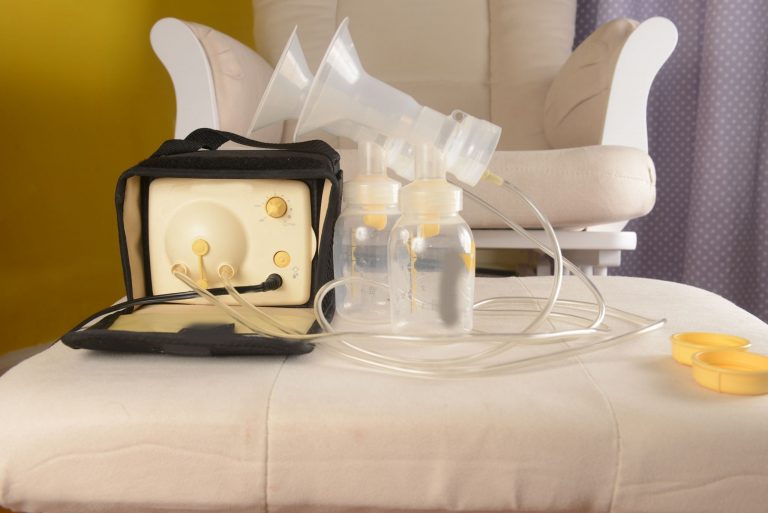
Babies communicate by crying. While this makes perfect sense when you think about it, a new parent finds it the most horrifying thing in their adult life. Since babies can’t use words to tell you what’s wrong, an inexperienced parent can really start to feel incompetent and stressed out.
I’ve gone through all of this with my son Leo, and hopefully, I’ll be able to teach you how to traverse that proverbial minefield. There are numerous reasons for a baby to cry, and we’ll examine them together.
Try To Understand What Your Baby Needs
No matter what the problem is, your baby usually responds in the same way – by crying. While it can be difficult, try to remain calm under pressure. Consult your partner about when your baby last ate, in case the problem is hunger. Check the diaper if you suspect that to be the issue.
Sometimes, your child could simply feel lonely. It’s hard to tell when this is the case, but if your instincts are like mine, you’ll want to hold and comfort your baby as soon as it starts making distressing noise. If you can’t detect any other problem, just sway a little while holding them. Babies want to cuddle.
In other situations, the problem may come from overstimulation. My son Leo, for example, dislikes being anywhere near an active living room when we have guests over. The noise bothers him, so what I like to do is take him to his crib and let him relax. Sure enough, he tends to stop crying shortly after.
Pay Attention To Your Baby’s Signals
Over time, and by getting to know your child, you will start being able to detect different types of cries and match them with a corresponding problem. Try to remember how your baby sounded the last time it was hungry, as opposed to what the cry sounded like when the problem was in the diapers.
Sometimes you can get close to the mark, but not quite hit it. Maybe your baby doesn’t want to eat, and instead just wants to suck on something. Again, the experience will teach you these nuances.
Luckily, there are things you can check without trying to decode your baby’s crying directly. Something like their diaper is very easy to inspect, and it gives you a clear answer or a useful dead end. You can save yourself a lot of stress by quickly and efficiently inspecting all these potential problems.
For example, when I suspect Leo might be cold or hot, the first thing I do is check his stomach. If it’s hot, he’s hot, and the same goes for cold. I immediately know what to do when I discover one of these problems, and I don’t have to check everything else unless the crying continues.
Recognize And Understand Colic
Eventually, you will encounter a situation where your baby has no real problem but just keeps crying, and nothing you can do is helping. This is terrifying for a lot of parents, as they might start to doubt their methods since nothing is working. Often, however, there isn’t much of a cause for worry.
Colic is a term used to describe inconsolable, unceasing crying babies often do. It’s perfectly normal, and you can expect it to become much less frequent in a couple of months. Sometimes, children just need to cry it out, and you should let them. Comfort them however you can, but don’t get overly stressed.Comfort can come through cuddling, eating (having a formula suitable for colic will help), or distracting through toys, or a pacifier.
My Leo is very moody, and he often switches from happy to inconsolable crying in a flash, to the point where I sometimes think something startled him or he somehow got hurt. This has never been the case, however, and I’ve grown to accept these colicky moments as part of my parent life.
If you’re currently stressed out because of colic, remember that it will go away. The crying problem gets worse before it gets better, but once it’s over, you’ll applaud yourself for being a patient, calm parent.
When Should You Seek Help?
Of course, this doesn’t mean crying is always insignificant. If your baby suddenly produces a high-pitched, striking shriek, you’ve got trouble on your hands. Crying doesn’t typically sound like that unless there’s pain involved. In this situation, have your baby checked out by a doctor.
Having a hundred false alarms is much less frustrating and scary than actually having a problem with your baby. I’m on a first-name basis with my doctor because I went there more often than I needed to, and I regret nothing.
Of course, external support doesn’t only help when the baby is feeling pain. If you or your partner are going through extreme emotional turmoil or are physically ill, there is no shame in getting assistance. In fact, it’s recommended, since no human can devote 24 hours per day to their child for an extended period.
The Power Of Preparation
We’ve all seen films or TV series where people go mad shopping for clothing and various tools for childcare. There’s a reason for this – being prepared in advance is the single smartest thing you can aim for when you’re (about to become) a new parent.
Read up on childcare literature, consult specialists and other parents you know. Invest money into various blankets to make sure your child is comfortable with its sleeping environment. Sometimes, you don’t know you need something until you run into it, as a lot of problems are hard to predict in advance.
None of us start off experience. There are a lot of resources for learning about childcare, and forums/websites where you can get in touch with other social parents. Never, ever be afraid to ask questions. I’ve made quite a few friends from being curious and inquisitive about my baby.
Conclusion
I hope I could offer some more insight into the scary world of childcare. It gets much easier after you get into the rhythm, and you’d be surprised how much time you can set aside for yourself when things ease up.
Let me know if you have any feedback and tell me some childcare stories of your own!

Hi, This is Emma Baster; As a mom, I spend my free time caring for my kids. I’ve read a lot on the Internet to improve my childcare skill and bring the best to my kids. Eruditemommy shares my knowledge and experience through helpful posts. I hope you enjoy them!







